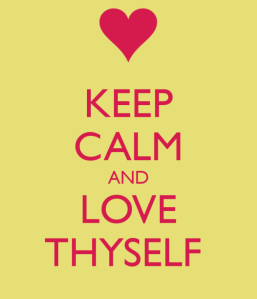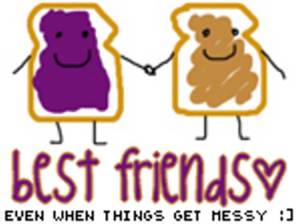Building a Better Relationship with yourself and the food you eat
With the coming of Valentine’s Day, discussions of love are in the air.
Maybe you are already in a happy relationship, and you feel lovey-dovey all the time. Or maybe you are single and frustrated and decry Valentine’s Day as the Hallmark fake holiday, created solely to make money on greeting cards, flowers, and candy. Maybe you are just over the whole idea of it.
My opinion is that it is easy to love someone (or something), but it is much more work to have a healthy relationship with that person (or thing), to keep that love alive year after year till the end of your days.
When I was single and dating, I didn’t really know what it meant to have a healthy relationship… because I had never been there. Attraction and infatuation are easy to come by. It was an entirely new concept to find a partner who supported me emotionally, whose long term goals in life aligned with mine (ie, want to get married and have a family), and who really wanted to stick with me through all the difficult times in learning to communicate better so that we could have a deeper and more fulfilling relationship. Once I found such a relationship, I married him. I thank my lucky stars for my husband.
We all know people are in (or have been in) dysfunctional relationships. People may be passive aggressive in their communication and seek to undermine their partners for petty reasons. There are some people who think they can ignore or change the fact that their partner does not want the same things in terms of long term big questions like marriage or children, until it blows up in a big fight.
Perhaps you even know someone who has been in an abusive relationship. It’s not always physically abusive, but it may be verbally abusive. Whenever one partner tries to physically or mentally harm the other partner, it is clearly an abusive pattern.
There are many parallels between the relationships that people have with each other and the relationships they have with themselves. So get ready for a bunch of analogies, and hopefully you will find a few ways to improve your own relationships.
Always treat yourself with the love and respect that you would give your oldest, dearest friend
I’m gonna come right out and say it – it is shocking how many people are in an abusive, neglectful relationship with themselves. And I’m not even talking about drug abuse. I mean emotional self-abuse.
In my personal experience, most of these people are the kind who would never stand for an abusive relationship with a romantic partner. They might be the person who has their bags packed and a restraining order ready after the first infraction.
So it breaks my heart to hear such people confide in me about their struggles, and the things they tell themselves. Words like fat, lazy, weak, failure, loser, ugly, or worthless might escape their lips. These same words, if spoken by a lover, would constitute verbal abuse. Why do so few of us recognize that? Self- abuse is just as inexcusable.
The tagline goes – there is no excuse for domestic violence. I would like to add that there is no excuse for treating yourself and your body as your own personal whipping boy.
Sometimes I have difficulty convincing people that their emotional self-abuse is indeed damaging them and hindering their health & fitness goals. They seem to think it’s OK for them to look in the mirror every day, pinch their belly, and tell themselves how fat and gross they look.
Huh? What? You wouldn’t take that from anyone else, so why should you get a free pass? You should always treat your body and psyche as your oldest dearest friend or loved one, because it truly is.
In our culture, there are lots of forms of self-neglect that pass for normal. Perhaps some will sound familiar to you.
-Working through the pain. (Meaning sharp pain, not discomfort of fatigue)
-Denying your body the sleep it wants, which results in dependence on caffeine and perhaps multiple alarms to wake up.
-Slamming energy drinks and working harder when feeling run-down. (When you feel run-down, that is your body asking you to rest, and perhaps eat more).
-Eating far too much or too little, and ignoring the obvious painful signs from the body.
-Eating specific foods that consistently cause problems like bloating, gastric distress and more. This could be a sign of food intolerance, and these intolerances vary individually.
Many people have a complicated relationship with food, and eat food for all kinds of reasons other than the enjoyable sustenance it should be. Food can be a source of guilt and shame, or it can give a high like a drug. Food is given to others to show love, or to sabotage someone else’s effort to trim their waistline. Food is labeled as good or bad. Sometimes, a food will cross over from one category to another. A few decades ago, we all talked about how bad butter is, and sugar is good. Now, more people are embracing butter and other saturated fats while telling the evils of sugar.
To me, the most useful way to view food is as your friend. You can and should have a wide circle of (food) friends, and it will probably be rare that you completely black-list a (food) friend when they betray you.
The healthy foods you like best are like your best friends. You can enjoy their company very frequently, even daily, and always feel good because of it, not drained.
Next comes your circle of close friends, which is like the healthy food you like, but might get tired of if you eat too much, or less healthy food that you like but choose to moderate. You like spending time together, but you don’t need daily contact. You might be fine going weeks or months without hanging out together.
The junk food that you have trouble controlling yourself around is like that old friend you’ve known forever, but they always seem to bring you down. Maybe your friend went down the wrong path in life, got in trouble with the law, or just doesn’t believe in the concept of self-improvement. Although you love this friend like a brother, you simply cannot spend more than a few minutes together. You still love your friend, but your goals in life just don’t align.
You may even have a few (or several) foods that cross the line – they just plain hurt your body and you will not allow it. Those foods are like a former friend who betrayed your trust, and now you have to go your separate ways.
Just as you would never punish yourself for occasionally getting together with an old friend that you haven’t seen in a long time, you shouldn’t punish yourself for eating a less-healthy food that you enjoy. So if you indulge, relax! Eat slowly, enjoy, and stop when you feel satisfied. Ask yourself if the bite you are currently eating still tastes as good to you as the first bite. When the answer is no, put down the fork.
I’ll end this article with a personal story from this past Christmas vacation. One day on vacation, I was feeling lazy. I ate a pastry for breakfast. For lunch I had a donut and some vegetarian “sausage” (gourmet food combination, right?). In the afternoon I went out with my husband to the mall and felt thirsty. I got an iced tea at one of those fancy tea places. I forgot to ask for half-sugar as I normally do. Maybe it was because the mall was so busy that I was feeling out of sorts, but when I tasted the tea I realized my mistake, yet I didn’t want to bother to get a new one. I went about drinking my tea and walking. Halfway into the cup, I sat down and was in a complete mental fog. I felt wretched. I told my husband what was going on and that I probably had too much sugar. I can recall feeling unhappy about my foggy state, wishing I could rewind the day and make different choices, but not upset at myself or the food I ate. When I got home, I made myself a normal dinner (with veggies, healthy protein, and fat), drank some water, and felt normal very quickly.

